5-22-19
Hedda Gabler Back in Town at L.A. Theatre Works
By Diane Sippl

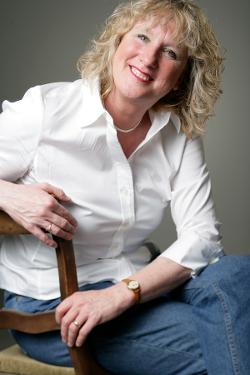
Most of us who love theatre and live for it know of Hedda Gabler, one of Ibsen’s most complex characters who, ever since he wrote the play he named for her in 1889, has never ceased to stir up trouble in our thoughts and feelings. How did George Tesman’s wife, Ejlert Løvborg’s old flame, and Judge Brack’s sparring partner get to be so bold, so shrewd, and so vicious? Hedda, a refined and clever woman, is the daughter of a general and the aristocracy who has succumbed to marrying a man of the petty bourgeoisie. Yet she is also a designing woman who makes her own choices.
Over three nights and two days (June 28-30), L.A. Theatre Works invites us to its live-in-performance recordings of Henrik Ibsen’s Hedda Gabler at UCLA’s James Bridges Auditorium. The play is translated from the Norwegian and adapted by Doug Hughes with today's audience in mind, and it is directed as a radio theatre performance by Debbie Devine. They discuss the process and presentation of their work.
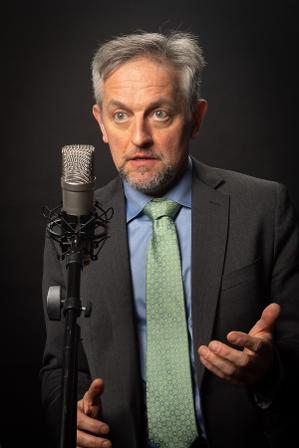
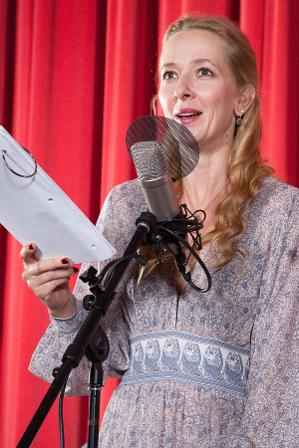
KINOCaviar Would you say you have written more of a direct English translation of Ibsen's play in its time, or an adaptation for Americans and today, or a re-invention of the play that Ibsen has inspired in you. How would you classify your writing?
Doug Hughes I wrote this version of Hedda Gabler way back in the nineties as a project to direct myself. I’ve done it twice, once for the company of The Seattle Repertory Theater and once in a Long Wharf Theatre/Steppenwolf Theater co-production with Martha Plimpton playing Hedda. I wasn’t trying to re-invent this fascinating play so much as I was trying to work from a script that was spare, clear and unfussy. Momentum was a priority. The walls close in on Hedda so quickly. She returns from her honeymoon and lies dead by her own hand within less than 48 hours. The play should fly by.
At the time, I did the play in period clothes but in somewhat open and abstracted settings.
KC Have you kept all of Ibsen’s major characters, or dropped some, or added some new ones? If so, who?
DH I’ve kept all seven of Ibsen’s characters. I’m not clever enough to imagine the play with fewer roles. And I’m certainly not clever enough to imagine adding characters. The weave of the play is so tight. It’s a flawless septet.
KC What about the conflict of an academic-rival tension between Hedda’s husband, Tesman, and her former lover, Løvborg?
DH I believe the Tesman/Løvborg rivalry is essential to the play so yes, I have retained it. I think Tesman considers Løvborg’s rehabilitation and ascent as an existential threat. I believe he verges on hysteria when Brack tells him of the sensation his former colleague’s book has caused.
KC How do you see the tension between Hedda and Judge Brack?
DH The relationship between Hedda and Brack is one of Ibsen’s many masterstrokes.
It’s flirtatious. It’s salacious. In the end, it’s deadly. Hedda believes she can keep up with this supposedly respectable but utterly depraved and abusive manipulator, but she can’t. He corners her. Hedda sees no exit but suicide.
KC Is Thea Elvsted an implicit rival of Hedda?
DH Thea Elvsted is crucial to the play. It’s a great part. Hedda at first regards her as easy prey, but the revelation of Thea’s collaboration with Løvborg enrages our heroine. Løvborg’s death tempts Thea to despair, she sees only darkness before her, but with incredible economy Ibsen creates a future for Thea. This time it’s a collaboration with Tesman. Hedda is made superfluous.
KC What do you consider to be Hedda’s main conflicts? What might you be changing, and why?
DH She is in conflict with a number of the play’s characters. But I think her most fundamental conflict is with despair. I think she is fighting against it throughout the play.
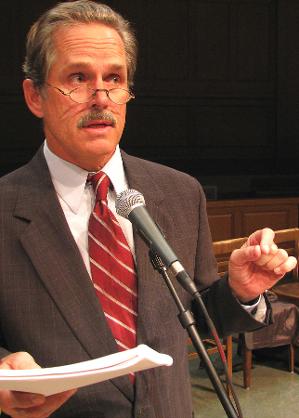
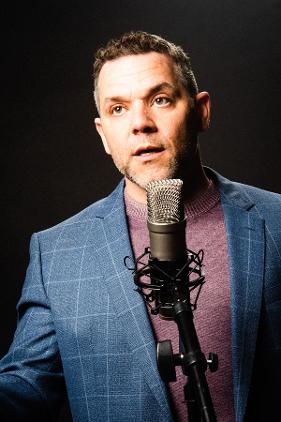
KINOCaviar What would you say sums up each character’s conflict and motives, beginning with the men?
Debbie Devine George Tesman is living with an inferior status and and hopes his marriage will elevate him. Ejlert Løvborg is battling alcoholism, his demon, and he is desperate to prove he’s recovered and will do that with his masterpiece. Judge Brack is a weak and disreputable official and his only relief is to compromise the women in his sphere.
KC What about the women?
DD Thea Elvsted is an abused wife and feels loved and valued by Ejlert. Hedda is suffocating from the constraints of 19th-century social rules (which I feel is another character in the play) and her terror of aging. She is in prison and combats this with the manipulation of others, which allows her a brief feeling of freedom
KC What do you see as Hedda’s relation to the others—socially, emotionally, psychologically?
DD Hedda’s marriage gives her ‘aging’ status cover. Her manipulation of Thea and Ejlert give her strength. Her relationship with Brack is that of communicating with an intellectual equal and takes the edge off her sense of suffocation.
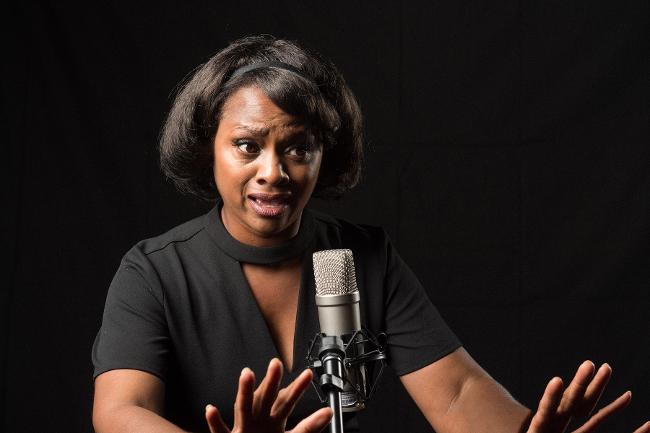
KC What are Hedda’s virtues and strengths? Her flaws? Do you see any alternatives for Hedda beside the one she chooses at the end of the play? What does that action lead us to think of her character?
DD Hedda is a musician. Her piano is the only thing of hers she brought to her new home, beside her father’s pistols. The piano gives her comfort and it’s the only thing she actually loves, I believe. Hedda wants the privileges of a man in her society. Perhaps she wants to be one. I think the act of suicide has been a constant companion. She sees it as heroic and the ultimate escape. She is not a villain. I believe she is the victim of the pernicious mental illness of boredom that has damaged her health and mind. I can’t think of any other choice Hedda could make.
KC Ibsen has been known as a poet, as a critic, and as a prophet. How do you see him? How is Hedda Gabler relevant today? Are there echoes of this heroine in any contemporary characters or people?
DD Ibsen was exploring a woman’s status. A Dolls House was written 12 years before Hedda. The power of that social commentary broke societal and theatrical rules. Ibsen’s work is considered classic because it resonates the truth about women as second-class citizens. It’s 2019 and we’re fighting at this very moment for the right to have control over our bodies. He’s deeply relevant.
Lillian Hellman owes Ibsen a great deal. Regina Giddens from The Little Foxes is also trapped and the only way out is to manipulate everyone around her. She loses everything in the end.
Contemporary female characters who are desperate for control can be found in Claire Underwood in The House of Cards, Miranda Priestly in The Devil Wears Prada.
KC How do you go about casting for a radio theater performance—any differently than for the physical stage? Is the directing process distinct from that for a theatrical production?
DD Casting an LA Theatre Works piece is an amazing process. Because Susan Lowenberg has a roster of the best actors in Hollywood and the rehearsal and performance commitment is only a week, there are many wonderful artists who want to participate. The distinction is that language, the text, rules the day. Every word matters and in the end with the accompaniment of sound and foley (the unsung hero of the day is that artist who creates and brings the sounds of the room to life) its delivered into a microphone in a presentational style. (actors aren’t looking at one another) It’s a specialized technique but theatre actors have it in their toolbox and it’s a pleasure to work with them to help them find the rhythm, timing, tension and connections with these restrictions.
KC Ibsen wrote Hedda Gabler in 1889 and it is often performed as a “costume drama,” or at least a “period piece.” Do you need to capture this context in a live-in-performance recording? If so, how do you do it?
DD Hedda Gabler is brilliantly written. No sets or costumes really needed. The actors unfold this story of heartbreak and tragedy with their talent and their voices.
Thanks to both of you for sharing your insights
Each of the four performances at UCLA’s state-of-the-art James Bridges Theater will be recorded live in front of an audience for future radio broadcast, distribution on CD, digital download and online streaming. L.A. Theatre Works’ syndicated radio theater series broadcasts weekly on public radio stations across the U.S. (locally, in Southern California, on KPFK 90.7 FM); can be heard daily in China and around the world on the Radio Beijing Network; can be downloaded as a podcast via iTunes and NPR One; and can be streamed on demand at www.latw.org.
Tickets: 310-827-0889 or www.latw.org